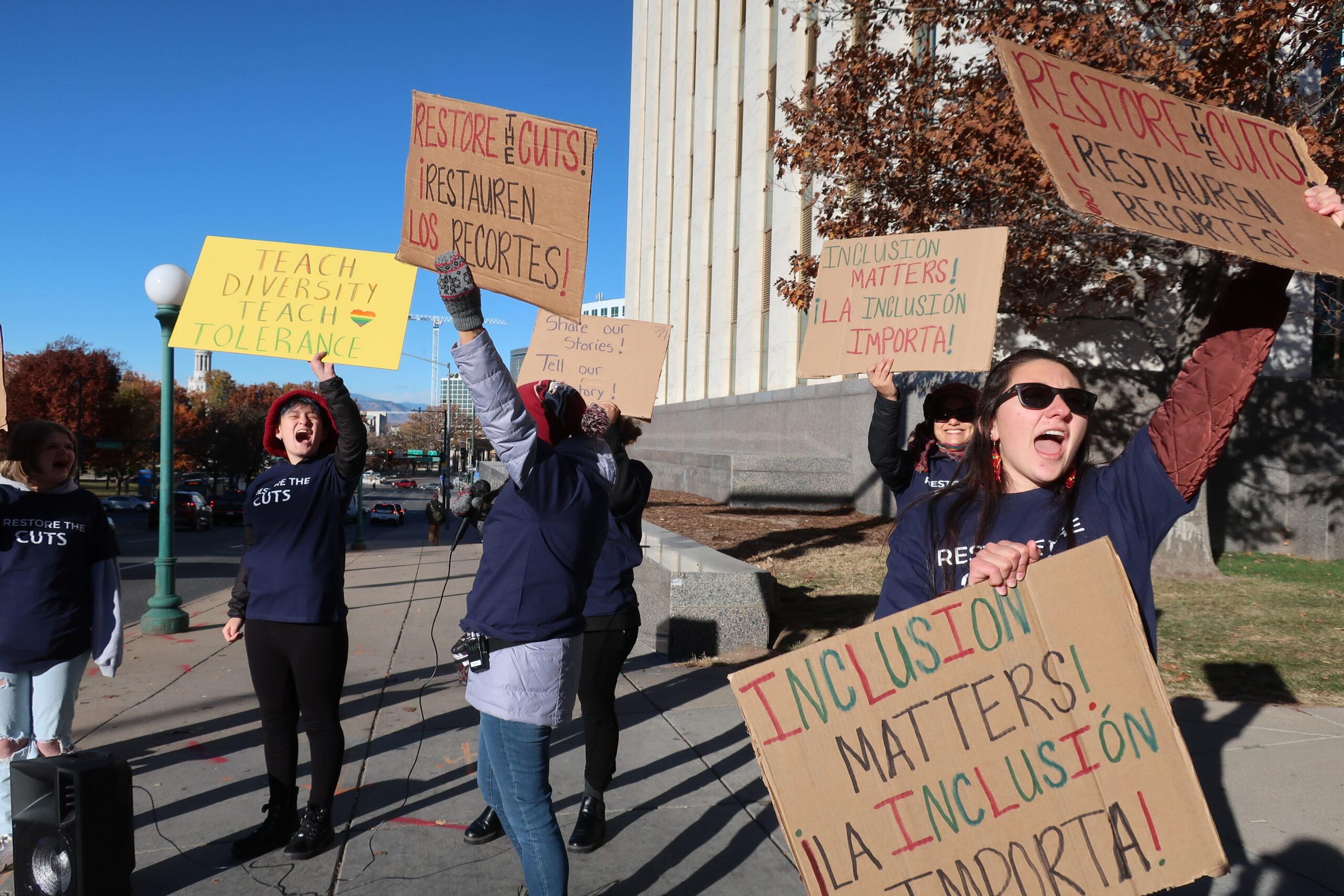
The turbulent, divisive, and emotionally fraught journey to update what Colorado students learn in social studies has come to an end — at least for the next six years.
It boiled down in large part to the number of times various minority groups are referenced, which Colorado law demands.
State Board of Education members voted on a party-line vote, 4 to 3, to restore many of the references to specific marginalized groups to all grade levels, with the inclusion of Native Hawaiians and Pacific Islanders. Democrats approved and Republicans opposed. The new standards will go into effect next year.
Board member Lisa Escárcega proposed restoring many of the references to specific groups. Her rationale for not recommending a complete restoration of every reference to every group is that she made sure to list racial and ethnic groups and LGBTQ people at the very top of the standard to stress its importance.
"It was a little more efficient," she said.
Board members also approved inserting the word “fascist” before the full name of the Nazi party, and including Rwanda, Darfur and Bosnia on the list of genocides that Colorado students will study.
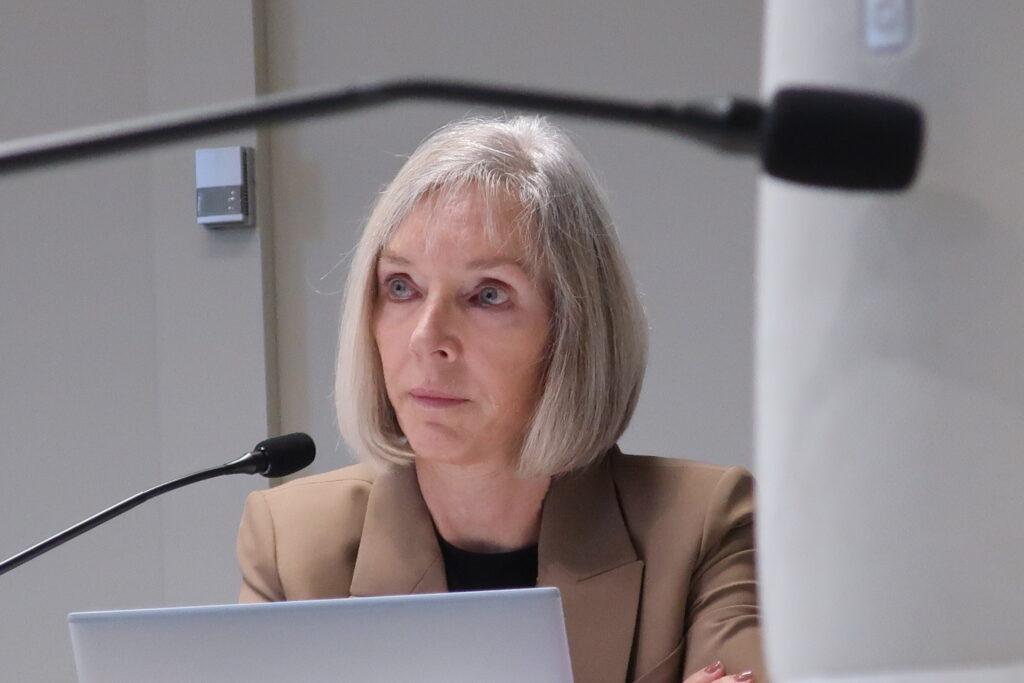
Why were the social studies standards being revised?
Every six years, each of the academic standards undergoes a revision process, such as those for art, mathematics, computer science, financial literacy, science, health and wellness and world languages.
The revision of the social studies standards included making sure they conform to new Colorado laws on topics such as learning about holocausts and genocides, media literacy, civics, financial literacy, and the inclusion of minority groups in the teaching of history and government. The revisions in most of those categories had been signed off on by the board.
There was also an attempt last month to wholescale jettison the work of a Colorado committee working to revise the standards and instead adopt the conservative American Birthright social studies standards authored by a national conservative group. The board voted 4 to 3 to reject American Birthright.
But the recommendations made last November that caused the most controversy were those made to align with a 2019 law. It calls for social studies standards to reflect the history, cultures and social contributions of diverse peoples. The law names specific groups: African American, Latino, American Indian, Asian Americans, and LGBTQ people.
The committee solicited public feedback, two-thirds of which were from people who supported the original revisions. A coalition of groups led by Great Education Colorado sent nearly 2,000 signatures on a petition in favor of them. The rest of the public comment was opposed to the revisions. Several board members critiqued the standards.
By April, the committee reversed some of the recommendations, eliminating references to LGBTQ people and issues below fourth grade, citing concerns about “age appropriateness.”
Then, 29 of 48 references to African Americans were deleted and replaced with “diverse perspectives.” The acronym “LGBTQ” was removed 27 times with it appearing five times in the final version. The most specific mentions of minoritized groups were replaced with generic language.
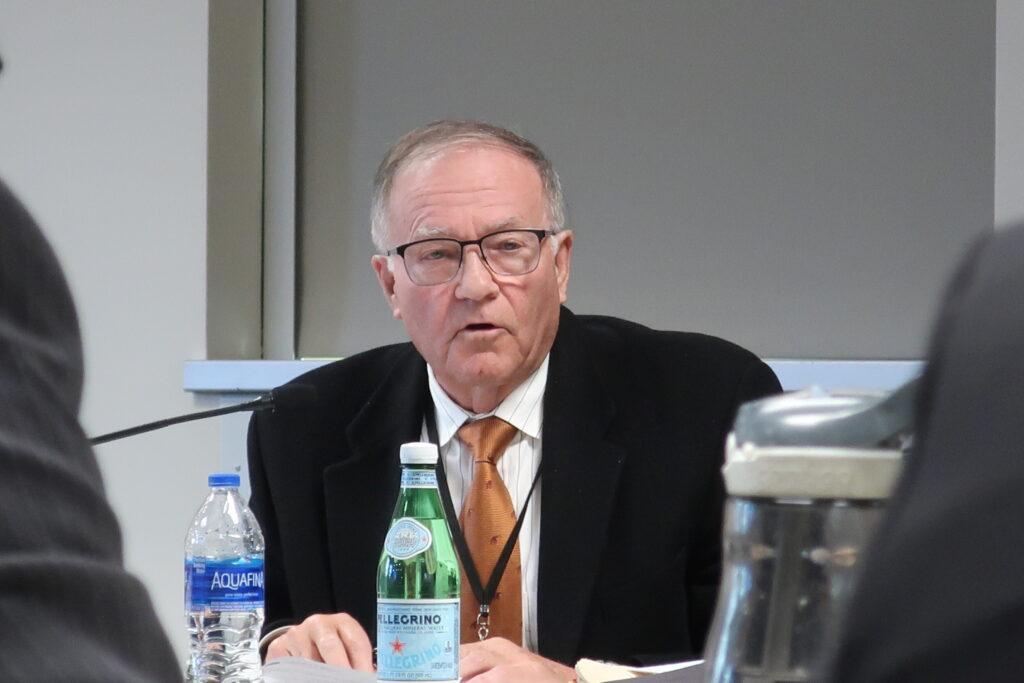
Some board members were concerned particularly about references to LGBTQ people in younger grades
Republican Board member Steve Durham objected to some of Escárcega's proposals for including references to LGBTQ people and issues in preschool.
"The impact and discussion of sexual issues is the same for kindergartens as it is for high school students," said Durham.
Durham referred to a video taken in a school library of a drag queen performance.
"To say it can't and doesn't happen is mistaken," he said. "Those kinds of performances are inappropriate for that age of children. I think they (the standards) are anti-parent.”
Democratic board members said that talking about LGBTQ people is not sexual education. Escárcega reiterated that the state law requiring that the history, culture and social contributions of minoritized groups be taught in social studies clearly states the teaching of sexual education is not allowed.
Even in health education, schools are not required to teach about human sexuality, and parents may opt-out.
Escárcega gave examples of where LGBTQ people issues may come up in the lower grades, such as when students talk about families and social circles.
“A child comes in and says ‘I have two moms,’” she said, such as when teachers ask students to bring in a photo of their family. “What you’re attempting to do is have students realize they have their own rich heritages and backgrounds.”
Board member Rebecca McClellan agreed.
"We don't need to make drama in order to recognize the existence of other human beings," she said.
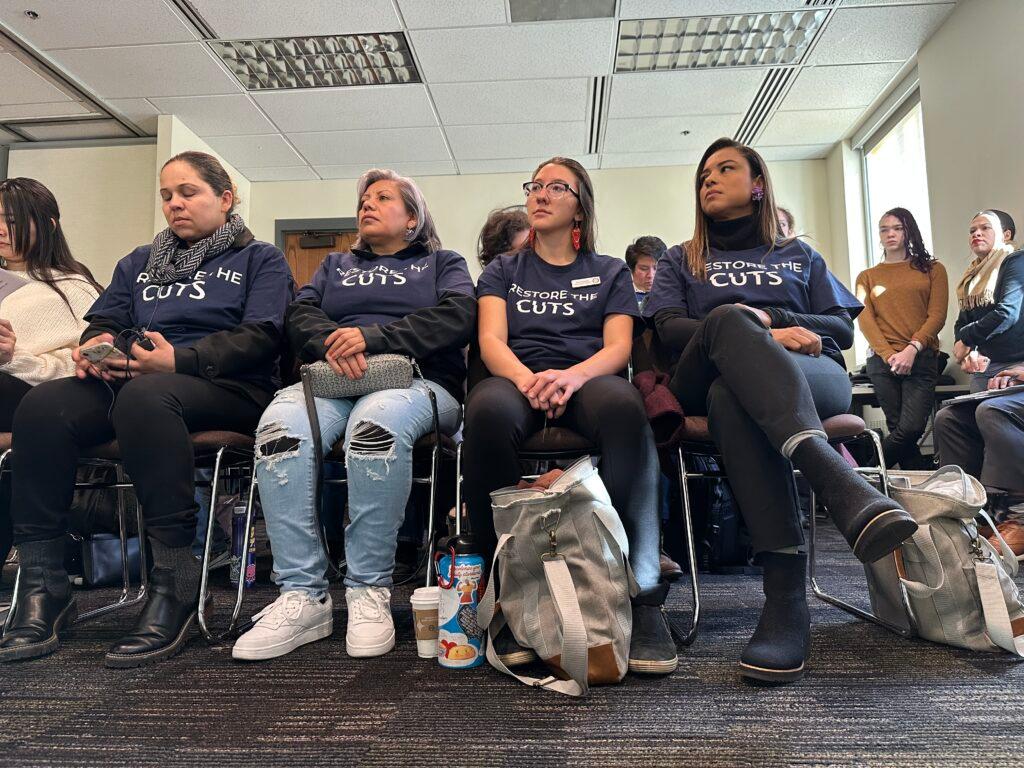
Most of the speakers during public comment, many of them students, spoke in favor of restoring the more inclusive standards.
Public comment took place before the vote. All speakers who gave public comment except for two gave impassioned speeches to restore all the revisions.
They argued that LGBTQ students and students of color must see themselves and their families in the curriculum, on the walls of the school and classrooms, and in the books, media and lessons that are the core of everyday life at school.
They said learning about diverse and marginalized people is essential to creating belonging and psychological safety, and that is directly tied to student success.
Tally Shannon, a transgender junior in Denver Public Schools, said she was told she would never make it past age 16 and felt there was no space in the world for her.
“Because when we are never taught a history in which we have lived, we can never envision a future in which we might. If we are never shown we can change the world, if we are told we never had a presence within it, if we are never told we can be happy and fulfilled, we’ll never try to do any of the above. We will never seek to smile, to understand, to even live.”
Reina Hernandez, a Latina transgender student in the Cherry Creek School District said because many students don’t know the history and contributions of LGBTQ people and other marginalized groups, ignorance prevails putting students at risk. During a school event, she said a group of boys yelled slurs and threw rocks at her and her friends.
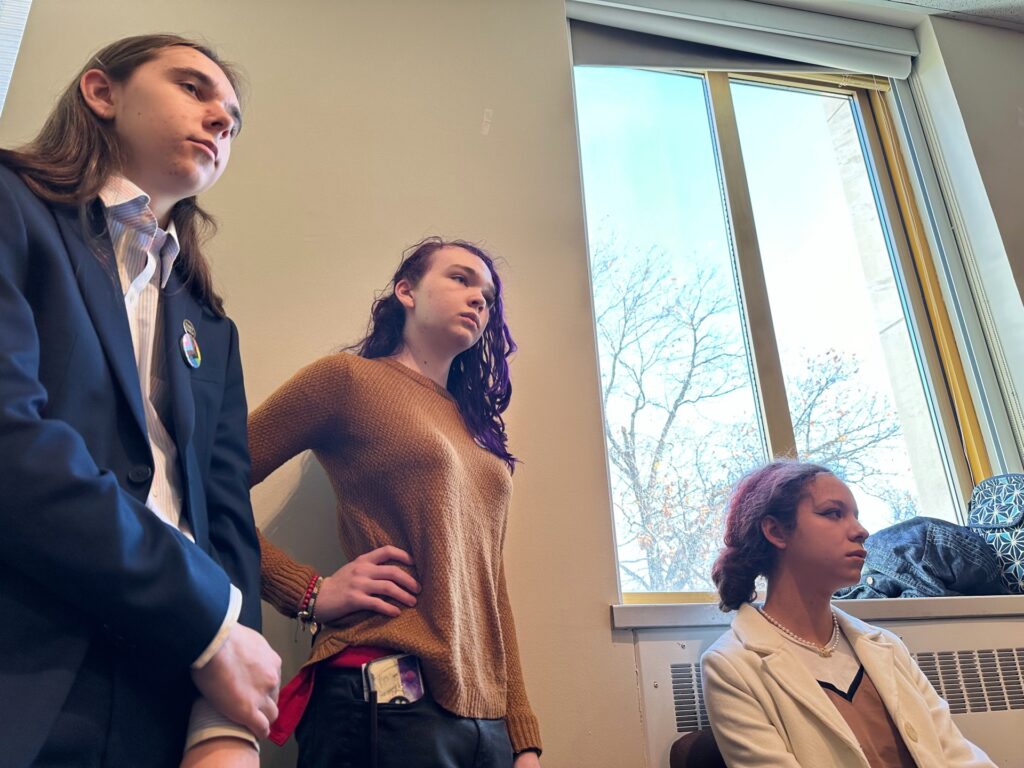
“By trying to remove any and all references to these two groups specifically, you are actively taking away safety from students, which in serious cases could mean life or death,” she said. “Will you support my right as a student to exist comfortably?”
Tiffany Grays, who is Black, said her family has been in Colorado for the past 100 years.
“Our history deserves to be told. Our history belongs in the books.”
Educators and education officials also spoke in support of restoring the more inclusive language.
Veteran social studies teacher Fletcher Woolsey said the original recommendations of the committee reflect the law and were concise and helpful to teachers, especially those who are not as familiar with the history of marginalized groups.
“As a straight white male, people like me are overrepresented in those standards,” he said. “And if people are not mentioned specifically, they will not simply be organically talked about. We as teachers need these suggestions. We need to know who these underrepresented groups are. We need to remember who has not had a voice so that we may lend it going forward.”
Two women spoke against bringing back more references to LGBTQ people and other minoritized groups. Parent Mary Goodley argued that parents should have the exclusive rights to mentor their children on complex social issues such as gender identity. She said it is inappropriate for an educator to discuss the contributions of the LGBTQ community.
“Teaching children about particular sexual or gender notions is a clear violation of parental rights and not only serves to further discredit, but also decreases trust in the public education model,” she said.
What’s next?
The commission that made recommendations for the social studies standards will now cull through them and work with schools and districts to support the implementation of the standards.
Board chair Angelika Schroeder reminded the board that school districts will need to share any new curriculum based on the standards with parents.
"I don't think this is a state board issue that we can come in and control," Schoeder said.








